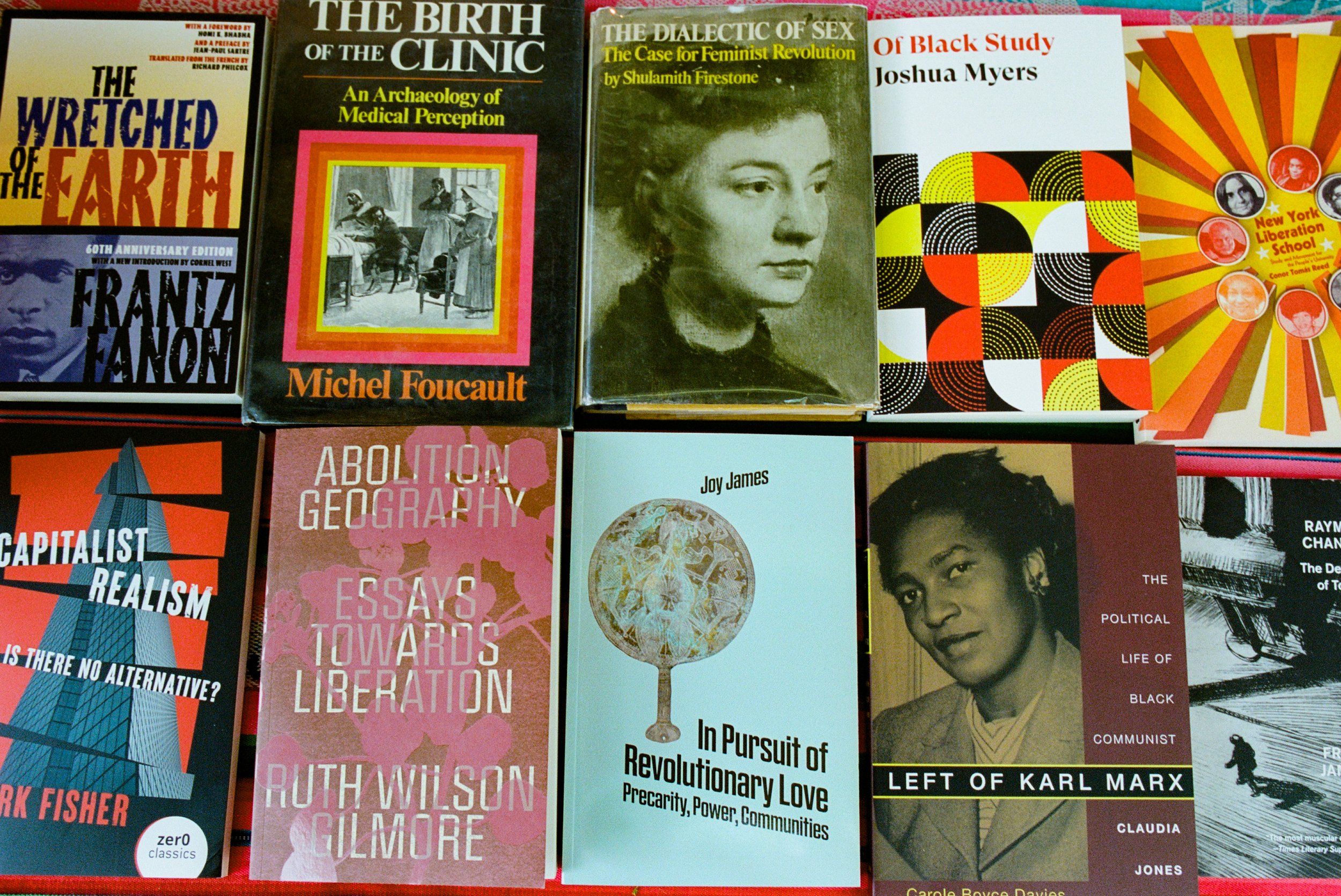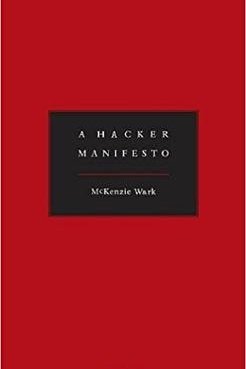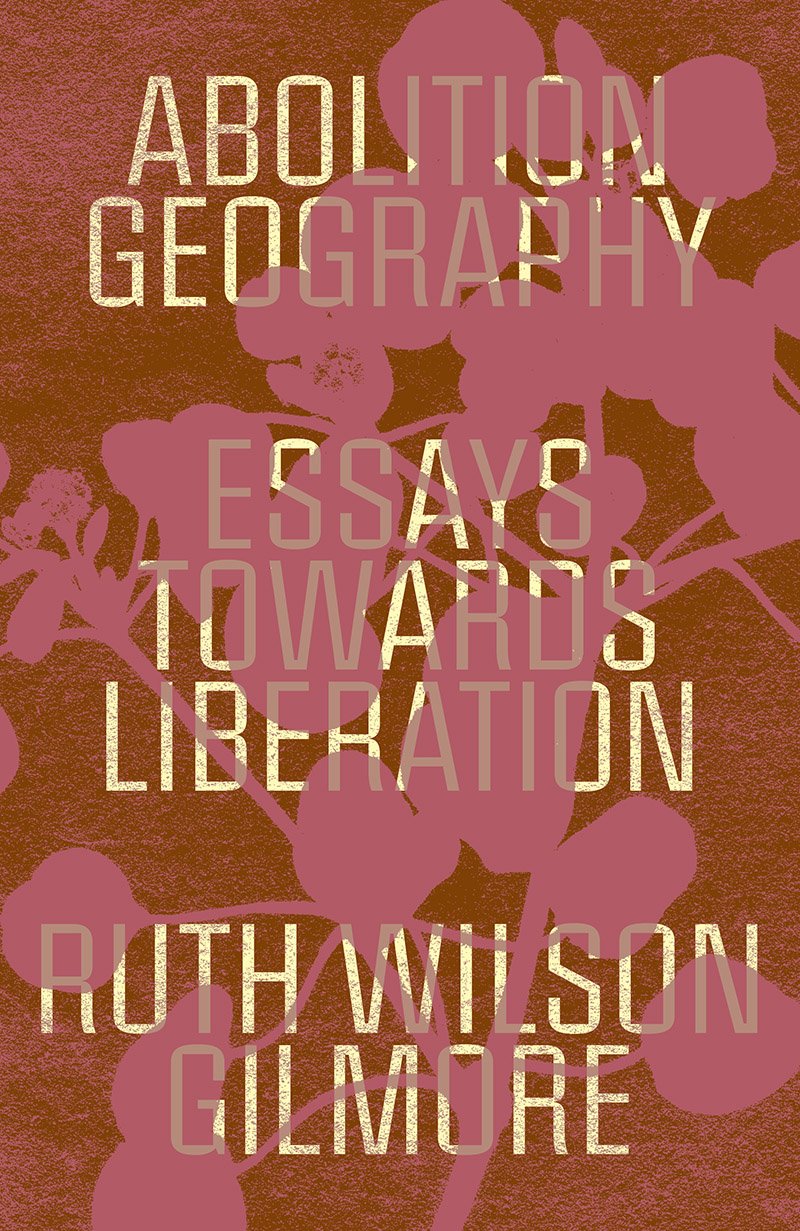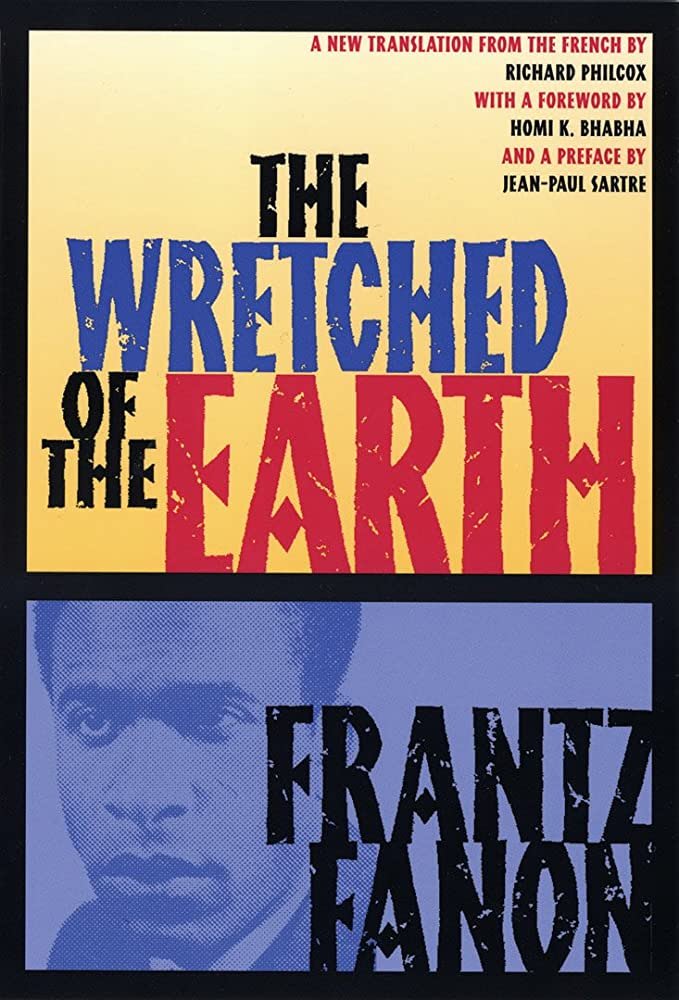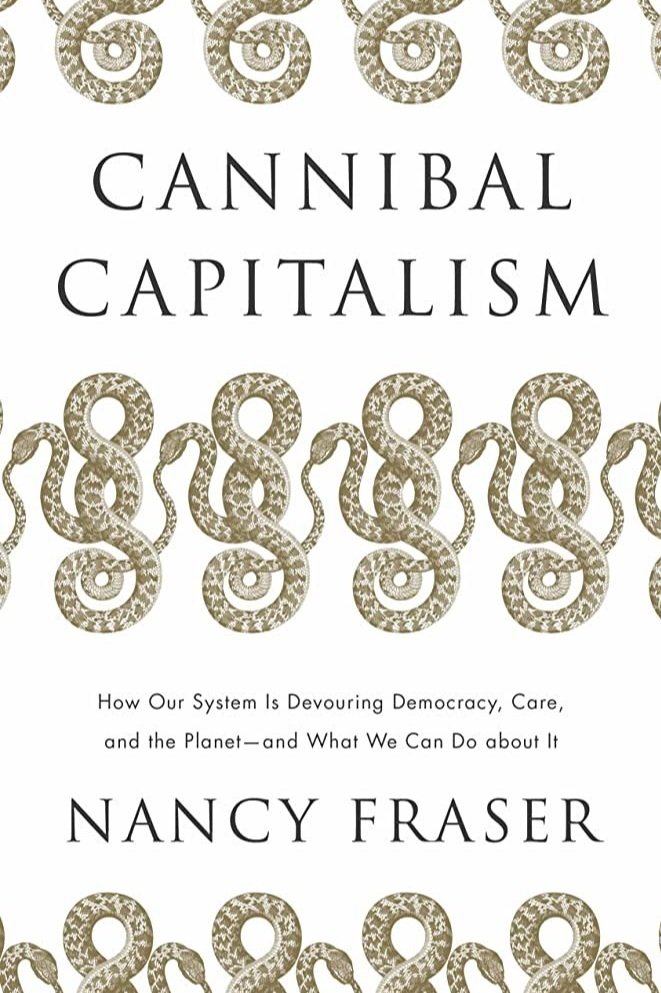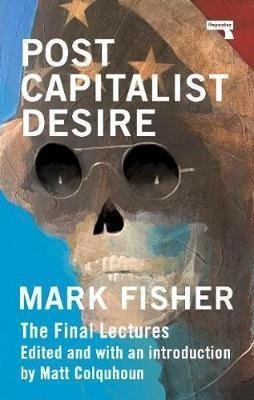“Critical Theory on a politics that has not lost all hope.”
“Critical Theory” is a vast category, with tendrils curling around all facets of culture, from the idea of a “justice system” to what it means to love another human to the lyrics of the pop song stuck in your head. It can be daunting to know where to begin, as there is no intrinsic hierarchy or clear relationship between all of these disparate concepts, but we have curated a selection of potential entry points that approach politics — specific or structural, social or economic — in ways that genuinely challenge and indict the status quo while offering alternative ways of thinking, behaving, and conceptualizing in a politicized society.
Below are our recs, with contributions from Alexander, founder of The Word Is Change bookstore in Bed-Stuy, and the staff of Verso Books. If you’re in NYC, consider buying locally — here’s a guide to the best secondhand bookstores in the city!
A Hacker Manifesto by McKenzie Wark
Recommended by em seely-katz
McKenzie Wark introduces a way of seeing the universe in which everything from relationships to artistic practices can be conceptualized as “code,” and thus is open to “hacking” — abstracting connections as if creating secret passageways between basements in different countries or adding hyperlinks to the figurative HTML comprised of the world’s “facts,” as such. Dividing players of the life-game into hackers, who generate information, and “vectoralists,” who commodify and capitalize upon it, the acclaimed writer-professor simultaneously simplifies and complicates the conception of our known world in entertaining, inspiring language.
Wark herself recommends Lose Your Mother: A Journey Along the Atlantic Slave Route by Saidiya Hartman, telling us “This book is meant to be read. That was a lesson I learned through my reading: a lot of Black theorists want to be read outside of academia. Hartman is writing in an emergency.”
Abolition Geography: Essays Towards Liberation by Ruth Wilson Gilmore
Recommended by the founder of the word is change bookstore
Ruth Wilson Gilmore veers away from the familiarly vague neoliberal narratives of racism and abolition, instead offering concrete, actionable interpretations of how to conceptualize a world beyond the one we’ve created upon a foundation of incarceration and punitive justice. Based in physicality and the specifics of location, this decade-spanning collection of Gilmore’s work is quite literally down-to-earth, and has influenced everyone from your favorite Twitter-frequenting writers (like Kay Gabriel) to, allegedly, Jay-Z.
The Wretched of the Earth by Frantz Fanon
Recommended by the founder of the word is change bookstore
A canonical text and literal required reading for anyone who has ever studied Critical Race Theory, Frantz Fanon’s most well-known work is a mind-blowing example of how emotion and personal experiences of oppression can be addressed theoretically without divesting it of its humanity. Deftly dismantling any logic that could be claimed lies behind imperialism and other forms of socioeconomic subjugation in clear, precise language that will have you feeling like Fanon put words to ideas you’ve always had in the back of your mind but could never articulate.
Cannibal Capitalism: How our System is Devouring Democracy, Care, and the Planet – and What We Can Do About It by Nancy Fraser
Recommended by the staff of verso books
Using the metaphor of cannibalism, Nancy Fraser unravels the ouroboros of capital and tracks the histories and crises that contributed to the miserable inevitability of the COVID pandemic. She touches on ecological destruction, racial violence, labor unsustainability, and more, connecting the different facets of capitalism in their untenability and suggesting a move towards “starving” it into oblivion.
Postcapitalist Desire: The Final Lectures by Mark Fisher
Recommended by cleménce polès
A collection of Fisher’s last lectures to students at Goldsmiths before he took his own life, this book examines the value of desire, connecting economic theory to its very simple roots: wanting to live in happiness. Though the book carries with it the tragedies of his own pain, he is first and foremost an empathetic writer, and his love of and earnest hope for humanity is ultimately life-affirming, rooted in solidarity and a desire for communal care: before his death, he was quoted as saying mental illness “cannot be properly understood, or healed, if viewed as a private problem suffered by damaged individuals.”
The Utopia of Rules: On Technology, Stupidity, and the Secret Joys of Bureaucracy by David Graeber
Recommended by em seely-katz
There is nothing more bland and vacant than bureaucracy… right? Somehow, David Graeber, with his sense of levity and frank but tender evaluations of human tendencies makes everything from filling out paperwork at the DMV to reading Dungeons & Dragons rulebooks take on new dimensions, some silly, some sinister, and all thoroughly excavated by an author whose voice is compelling (Graeber was a founding leader of the Occupy Wall Street movement and coined the oft-referenced slogan “We are the 99 percent”), entertaining, and empty of the condescension that’s often the downfall of critical theorists.
Mute Compulsion: A Marxist Theory of the Economic Power of Capital by Søren Mau
Recommended by the staff of verso books
This book is a nuanced, thorough, and often critical evaluation of Marxist philosophy and how its history addressed the warped logic that led to our present capitalist hegemony. Spoiler: life gets worse when profit is valued over sociality and humanity!
Health Communism: A Surplus Manifesto by Beatrice Adler-Bolton and Artie Vierkant
Recommended by cleménce polès
The thesis of this book, that to defeat the misery-inducing reign of capital we must divorce its economy from the conception of “health” that divides humanity into productive agents and disabled, thus deemed useless, “surplus” humans. Beatrice Adler-Bolton and Artie Vierkant collaborate to understand the relationship between health and value, tracking the ways capitalism both divests from and extracts money out of people unable to bend correctly to its every whim and exploring ways people with disabilities and illnesses have resisted or subverted these dynamics.
Abolish the Family: A Manifesto for Care and Liberation by Sophie Lewis
Recommended by cleménce polès
Though it might seem unthinkable at first brush, Sophie Lewis advocates for the abolition of the family unit as it is and has been throughout history, laying bare the potential for the conception of “family” to enable abuse, alienation, and other forms of trauma. Though its thesis is radical in a way that might put potential readers off before they crack its spine, the book is short enough (sub-150 pages) that its totality can be engaged with and understood in the same urgent swiftness as it was written. The book’s undercurrent of desire for different forms of communal living reveals its extreme assertions as grounded in a true love that has the potential to shake the foundations of your understanding of relationships.
New York Liberation School: Study and Movement for the People’s University by Conor Tomás Reed
Recommended by the founder of the word is change bookstore
This book meshes history, largely of the city university system (CUNY) amid the fomentation that defined the 60s and 70s in NYC, with Conor Tomás Reed delineating the contributions of everyone from Samuel Delany (if you’re critiqued out at this point, check out Delany’s still theory-driven but delightfully dreamlike sci-fi novel Babel-17) to Assata Shakur, and how they created the epicenter of a worldwide shift in the conceptions of feminism, antiracism, and anti-colonialism that reverberates and re-figures itself to this day, half a century later.
For more thoughtful and lucid theory, check out:
Carceral Capitalism by Jackie Wang
recommended by Cleménce Polès
The Birth of the Clinic: An Archaeology of Medical Perception by Michel Foucault
The Dialectic of Sex: The Case for Feminist Revolution by Shulamith Firestone
Of Black Study by Joshua Myers
Capitalist Realism by Mark Fisher
In Pursuit of Revolutionary Love: Precarity, Power, Communities by Joy James
Left of Karl Marx: The Political Life of Black Communist Claudia Jones by Carole Boyce Davies
Raymond Chandler: The Detections of Totality by Fredric Jameson
recommended by The Word is Change
Microverses: Observations from a Shattered Present by Dylan Riley
Towards a Green Democratic Revolution: Left Populism and the Power of Affects by Chantal Mouffe
Communism and Strategy: Rethinking Political Mediations by Isabelle Garo
Confronting Capitalism: How the World Works and How to Change It by Vivek Chibber
Democracy in the Political Present: A Queer-Feminist Theory by Isabell Lorey
recommended by the Verso staff — sign up for our passerby club to receive a code for 40% off all Verso-published books in this article + many more discounts and weekly bonuses!
Psychopolitics: Neoliberalism and New Technologies of Power by Byung-Chul Han
Until We Reckon: Violence, Mass Incarceration, and a Road to Repair by Danielle Sered
recommended by Em Seely-Katz
Words by em seely-katz

